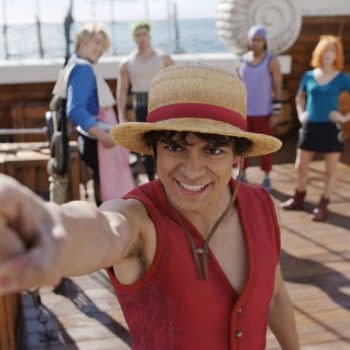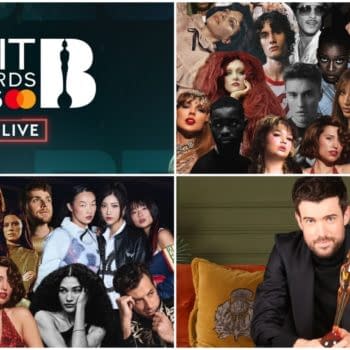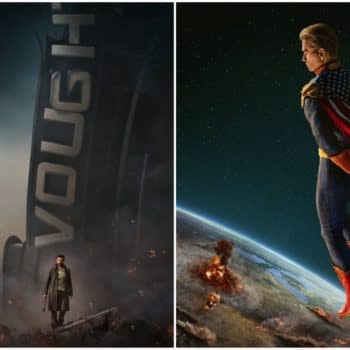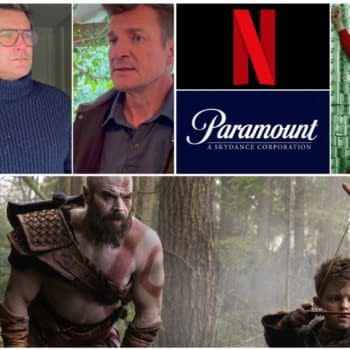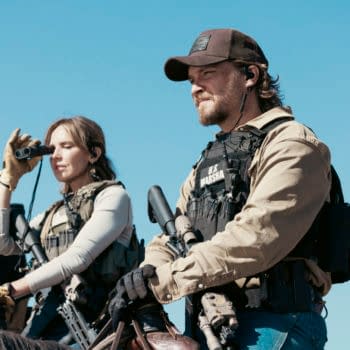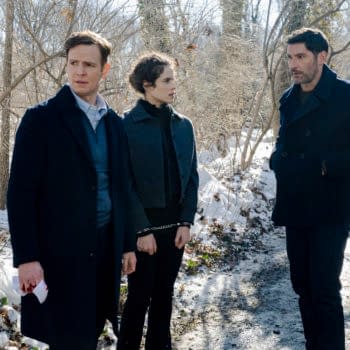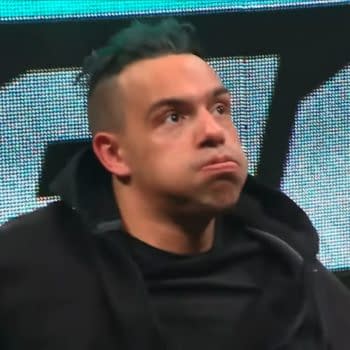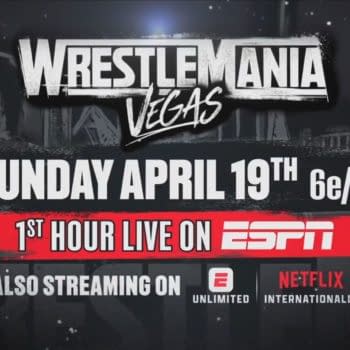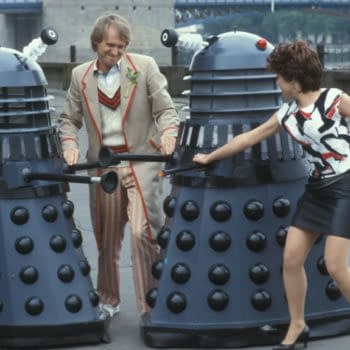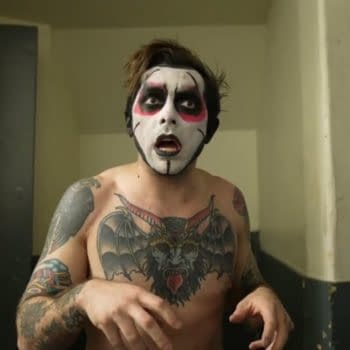Posted in: Disney+, Preview, Star Wars, streaming, TV | Tagged: acolyte, disney, lucasfilm, preview, star wars
Star Wars: Jodie Turner-Smith Reportedly Joins "The Acolyte" Cast
With production set to get underway in London this fall, reports are that Jodie Turner-Smith (Queen & Slim, Anne Boleyn) is close to joining Amandla Stenberg (Dear Evan Hansen) in the cast of writer, executive producer & showrunner Leslye Headland's (Bachelorette, Russian Doll) upcoming live-action Star Wars: The Acolyte. No details have been released on either Stenberg and Turner-Smith's characters, with the mystery-thriller series taking viewers into a galaxy of shadowy secrets and emerging dark side powers in the final days of the High Republic era. Deadline Hollywood first reported the casting exclusively, with reps from all parties involved not commenting.
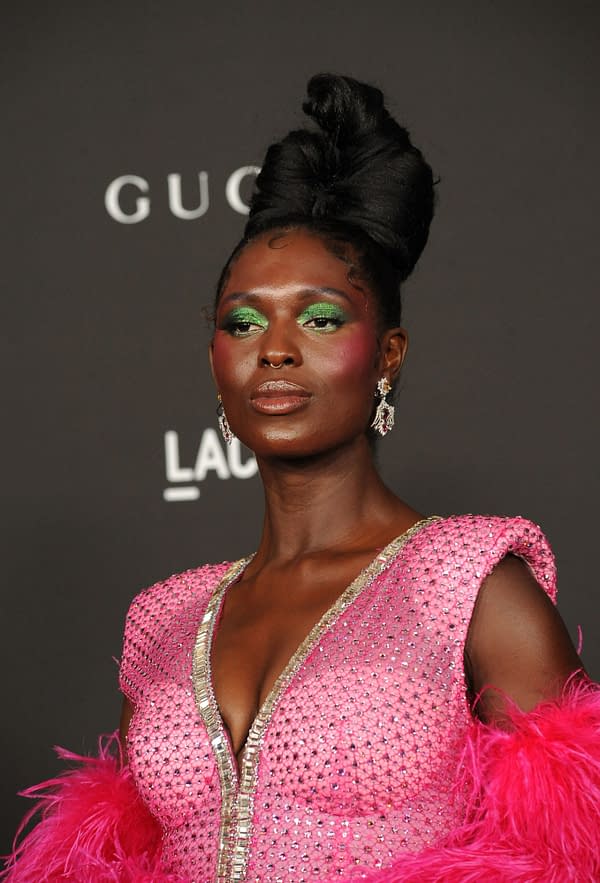
Last summer, Headland offered some insight into how they are approaching the series (and you can check out the full interview here):
How Headland Approached Assembling "The Acolyte" Writers' Room: "First of all, I really wanted people that were different than me. I certainly didn't want a room full of people that were just agreeing with me vehemently. Not ideologically, but artistically—people that kind of had different writing styles or were interested in different things, all that kind of stuff. But there was a certain intention, in terms of putting together a room that I felt like were people that I hadn't been in a room with before, if that makes sense. I don't think I can go much further into that, but like, 'Oh, I haven't had this experience yet, and because I think it's weird that I haven't had this experience yet.'
Having worked in this industry for over a decade now and having been in a couple of writers' rooms, I felt like the demographic breakdown of rooms, it's not something you actively take into consideration. For example, on Russian Doll, we ended up having an all-female writers' room, but I don't know if that was really something that we said at the front: 'We were only going to hire women.' I think when you have a dictate like that, you're closing your mind to, again, people that are going to challenge your particular artistic POV. Mostly what I looked for were people that I felt could execute a great script, number one. And then in the job interview, just really talking to people who had different life experiences than I did, and had different connections to Star Wars than I did.
What I also learned about hiring my room is that everyone's fandom was very different. No one had the same experience with Star Wars. There were people like myself that were like later-in-life [Dave] Filoni acolytes. I literally had one writer that was like, 'I have never seen any of them. I've never seen any Star Wars media.' And she's texting me before we started the room, she's like, 'Luke and Leia are brother and sister, what the…?' [Laughs.] And it was so great because I would really love to know from someone who is not fully immersed in this fandom, what do you think about the pitch we just made? So while she did her due diligence and did a lot of background work and research, at the same time, she was somebody that we would kind of talk to and say, 'Okay, so if we take all the kind of signifiers out of it, and this is Star Wars version of X, what does it mean to you?' She would be able to give some feedback: 'Well, I'm kind of wondering what's going on with this character. And in this scene, I'm wondering why so-and-so isn't saying this.'
So that was what I really wanted—an active conversation between my writers and myself, and not so much a room full of people that would kind of just automatically agree with what I say. Which is good sometimes; sometimes it's nice to have everybody love my pitch. It's not Star Wars, but I think a lot about [Jean-Luc] Picard and the way that he would utilize his crew and say, 'What do you guys think? Any suggestions? What should we do next?' And kind of hearing the debates and the sort of Socratic conversation that would result. I wanted to put the room together in that way. That also means hiring people that are not necessarily the die-hard, cutthroat fan that I am when it comes to Star Wars stuff. It is weird to be the person who's going, 'Well, in 325 BBY,' and everyone's like, 'What are you talking about?' 'Hold on, I'll send you a link.' Everyone's like, 'Should that be another person that's doing that? Why is the showrunner doing that?' And I'm like, 'Here's a picture, this is what he looks like.'
To me, that kind of stuff is so fun, because I also played some Star Wars RPGs. And that's my favorite version of Star Wars, the Star Wars where you get to make up your own Star Wars. So when people are like, what's your favorite film? And what's your favorite piece of media? I'm like, "I just really love the RPGs." To me, that's what Star Wars is, is being able to walk into a universe and start playing. If you can't do that with the movie, television show, novel comic book, video game, then I'm not sure you've done what you need to do as a creator of Star Wars material
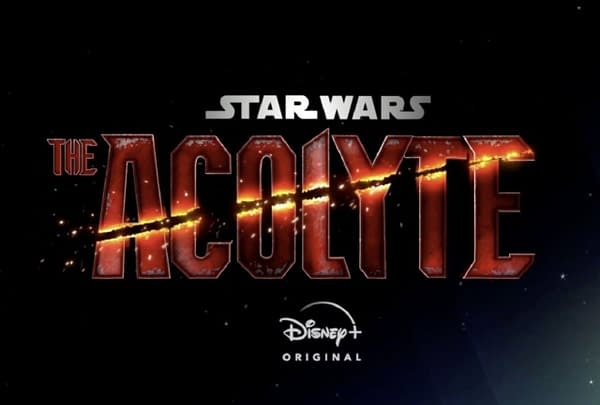
Why A "Star Wars" Universe "Mystery-Thriller" Series Fits George Lucas's Vision: "We're all just following in George's footsteps. He is such a deep worshiper of film, and not just the medium of film, but the history of film and the way film has been used, and all the different genres that he infused the original trilogy with is something that only he can do. He was such a believer of 'film as tone poem,' that it only makes sense that people who are doing their own side stories or their own series or their own stand-alones. It makes sense that they're kind of taking one aspect that he may have been interested in, or are taking inspiration from and infusing it into their particular content.
When you watch his original trilogy, you can kind of pick out all the different references, all the different things that he pulled from. And then there's the kind of gestalt of how everything comes together and is so much greater than just the reference, which is what kind of ended up happening in the '90s. There were all these references being made and recognized. It's the same with being online—we've either seen a clip of it or we've seen the movie. Whereas, someone like George, he had to be a dogged admirer and ardent devotee to the art of cinema, in order to be cherry-picking the way that he did.
In a way, that's why that ends up happening. I don't know for sure, but if I had to take a guess as to why the stand-alones and the series ended up feeling like we're going to move just into this particular space or we're going to lean into this particular genre, which we know inspired George. And that goes for ideology as well. I mean, it's funny, because a lot of the feedback that I'll get—and I use the term feedback very lightly—but when I do go on social media, the feedback is 'Don't make Star Wars political.' I'm like, 'George Lucas made it political. Those are political films.' War is, by nature, political. That's just what's up. It's truly what he was interested in talking about and looking at and digging into. So it's kind of impossible to tell a story within his universe that doesn't have to do with something that has to be that the characters see externally reflected in whatever's happening in the galaxy at that particular time period of when it takes place. You know? That's another thing that we all kind of inherited from him as well, and hope to kind of keep reflecting in the work, hopefully."




